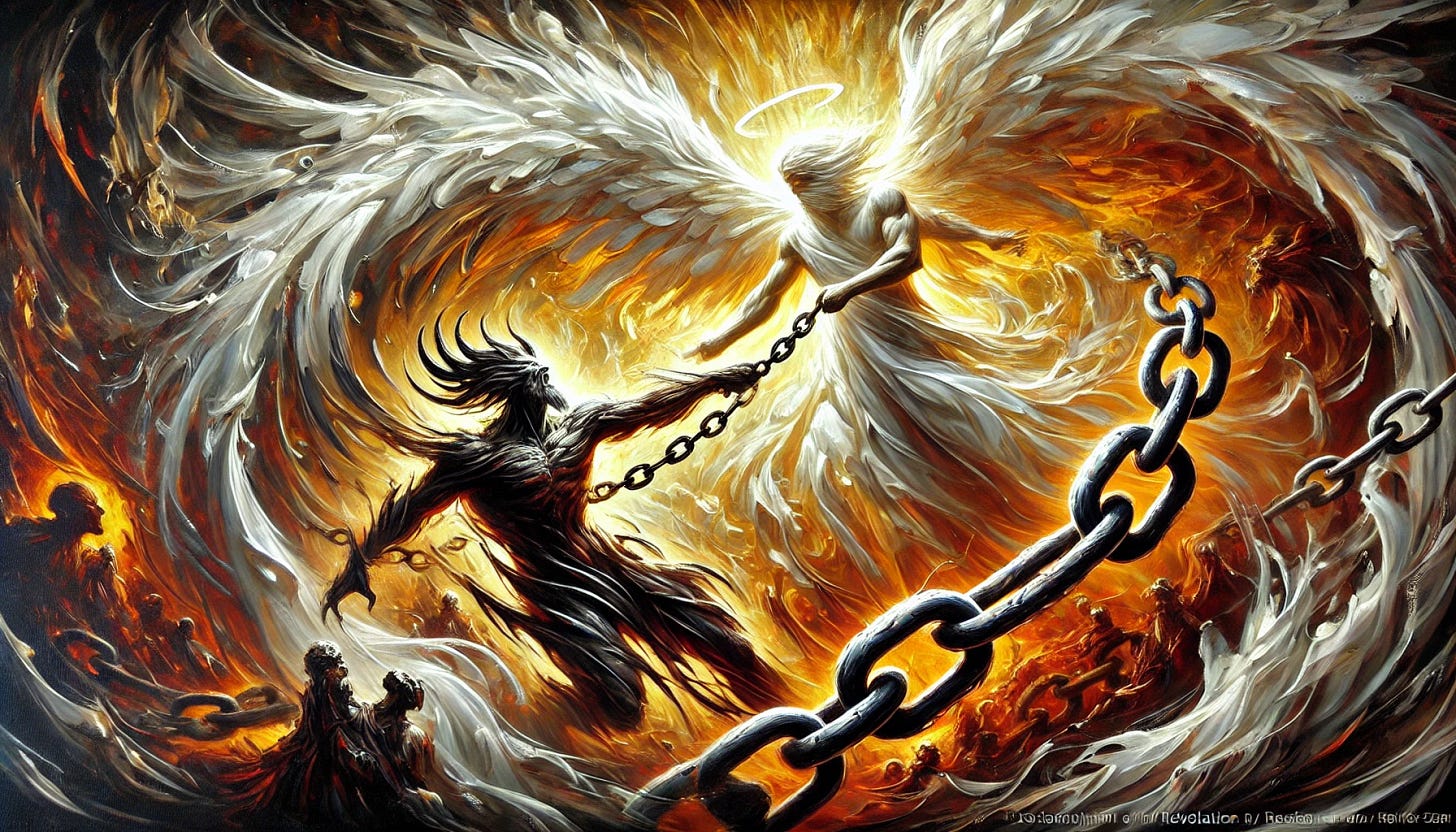Click here to read the passage.
Click here to read the notes and questions for Revelation 19:11-21.
We’re studying only 10 verses, but they are tough ones as we are directly confronted with (at least) three different viewpoints of the end times:
Premillennialism
Amillennialism
Postmillennialism
Here is a chart for a brief breakdown on the three main millennial viewpoints. I especially found the “advocates” category interesting. I am a fan of men in all three of the columns.
One commentator had this to say: “Strengths and weaknesses exist in each argument about the millennium. We must study diligently and seek to understand all of God’s Word. And we must remember that all three interpretations of the millennium agree that Jesus will be triumphant in the world.”
In Revelation 19, John saw Jesus vanquish most of his enemies. Never again would the beast, the false prophet, or earthly kings torment God’s people. But the great enemy remained: the dragon, the ancient serpent — Satan himself.
Revelation 20 describes Satan’s imprisonment, the thousand-year reign of Jesus Christ, and Satan’s final defeat.
Satan will be thrown down, locked up, and sealed in the abyss. The evil one will not be allowed to deceive the nations during this thousand-year period that we call “the millennium.”
Notes on Verses 1-3: Before the Kingdom: Satan Is Bound
Pastor John MacArthur notes that in Revelation, the abyss, or pit, is always a “reference to the temporary place of incarceration for certain demons. The abyss is not their final place of punishment; the lake of fire is (Matthew 25:41). Nevertheless it is a place of torment to which the demons fear to be sent (Luke 8:31).”
Four names or titles are given that describe Satan’s character and devices.
He is “the dragon,” mentioned 12 times in Revelation. He is terrifying, powerful, cruel, dangerous and vicious.
He is “that ancient serpent,” which recalls Genesis 3 and the garden of Eden. He is our ancient enemy who deceived Adam and Eve, ushering in the fall.
He is “the Devil,” meaning the slanderer, the accuser.
He is “Satan,” meaning the adversary, the enemy, our opponent. This is our archenemy who hates us and lives for our misery, our death, our destruction.
Notes on Verses 4-6: During the Kingdom: The Saints Will Reign
Most scholars believe the “first resurrection” includes all believers. The “rest of the dead” in Verse 5 are not resurrected until the thousand years end.
Different views exist regarding the two resurrections. John presents a sequence of resurrections where the second resurrection refers to a resurrection of all unbelievers.
God’s people will reign with Christ on earth for 1,000 years, after which the remainder of the dead come to life in the second resurrection. But they will not rise to life, but to condemnation and eternal separation from God.
If you are a believer in Christ, your body will rise in the first resurrection. You will be with Jesus Christ through the events of his second coming.
The word “resurrection” almost exclusively means physical resurrection in the more than 40 times the word appears in the New Testament.
Notes on Verses 7-10: After the Kingdom: Sinners Will Be Defeated
Gog and Magog are names that do not appear to represent any specific geographic area but rather opposition to God and his kingdom.
Satan will be released from his prison at the end of the 1,000 years. After a brief rebellion, God will overthrow Satan forever. He will be thrown into the lake of burning sulfur and tormented forever. God will destroy evil, exalt his son, and protect his people.
MacArthur: “Like Armageddon a thousand years earlier, the ‘battle’ will in reality be an execution.”
Questions
Which view do you think makes the most sense of the end times — premillennial, amillennial or postmillennial — and why?
What does it mean that believers will reign with Christ? How will our reign relate to His? In what ways is the millennial reign like the garden of Eden before the fall? (Verse 4)
How might you be inspired by Verses 4 and 6? How might it give you hope in a current hard circumstance?
Why is Satan released for a final rebellion after the thousand years? What purpose might this serve in God's plan? (Verses 7-8)
When Satan is released after 1,000 years of Christ’s reign, he immediately returns to deceiving the nations — and some people are deceived. What does this say about us humans?
How can you protect yourself from Satan’s deception?
Is it just for God to punish someone (even Satan!) for eternity?






The table of the different views including the advocates is insightful as I see well known and trusted names. A thought I haven't fully pondered, what would be the personal application for each of the views? If premillennialism is correct, how would that impact my actions?
I appreciate in a few of your questions you include a verse reference.